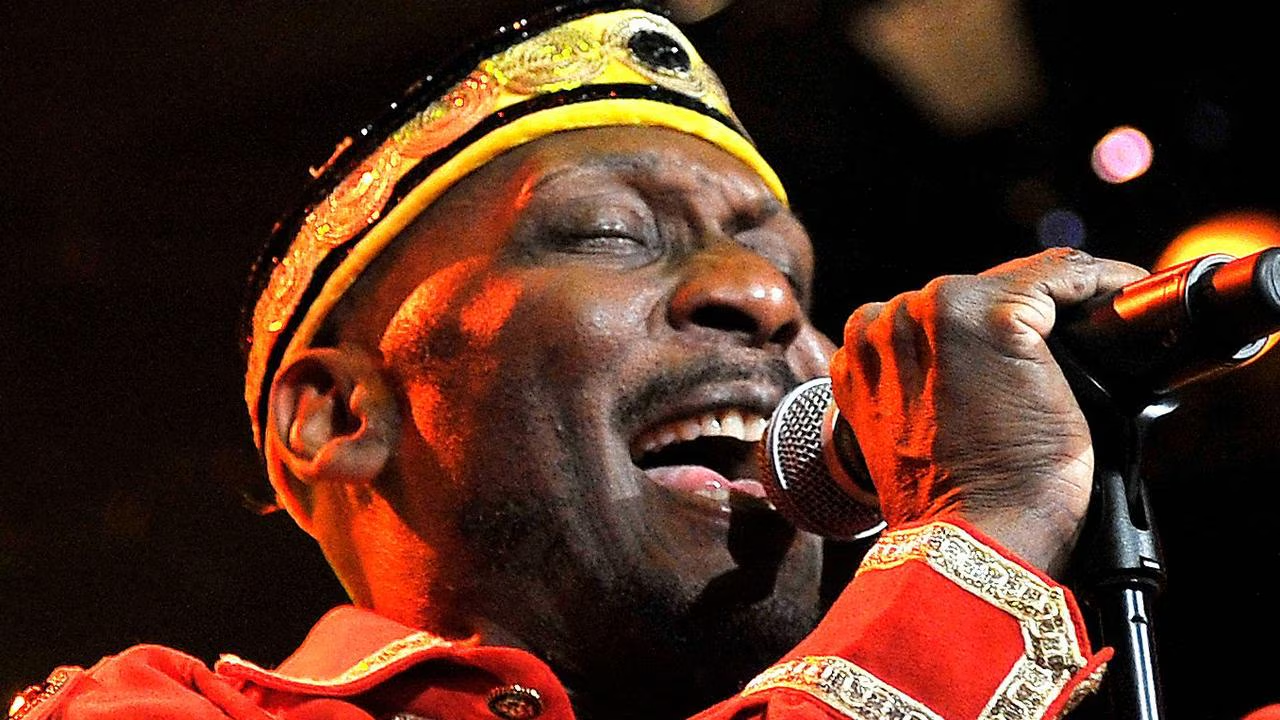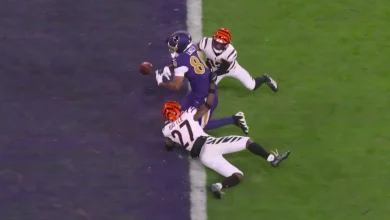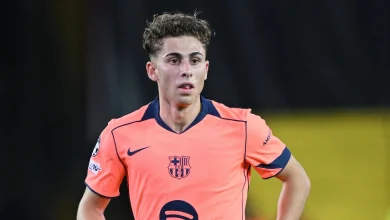Chainsaw Man Already Has The Best Shonen Anime Film of All Time & It’s Not Even Out Yet

The following contains spoilers for Chainsaw Man – The Movie: Reze Arc.
Chainsaw Man – The Movie: Reze Arc is days away from release in North America, and the hype is real. The film is proving itself a hit all over the world, achieving both commercial success and critical acclaim, even dethroning Demon Slayer as the #1 film at Japan’s box office every weekend since its release. I hate to say I told you so, but even before the movie comes out in America, I’m 100% certain it’s already the best shonen anime film ever made.
It’s not just glazing, though it’d be fair to say I’m biased. I’ve read every manga Chainsaw Man author Tatsuki Fujimoto has officially released (including his early one-shots set to be released in the awesome Tatsuki Fujimoto 17-26 limited series), and have been formally reviewing every weekly chapter of the CSM manga at CBR for 2 years straight. What that experience with Fujimoto’s manga has given me is a distinct awareness of the cinematic nature of his storytelling and art style, which has always looked and felt like a movie. In short, Chainsaw Man was always meant for the film medium, maybe even more than it was meant to be a manga. That’s why I’ve been so confident from the start that the Reze Arc – one of the best arcs within one of the greatest shonen manga series of all time – was destined to be an instant anime film classic.
Chainsaw Man’s Reze Arc Was Literally Made to be a Film
Denji cheers in front of a cinema in Chainsaw Man – The Movie: Reze ArcMAPPA
The arc that makes up the Reze Arc movie (also often referred to as the Bomb Girl Arc, for obvious reasons) begins in Chainsaw Man manga Chapter 39. In that chapter, Denji goes on a date with Makima to a movie theater for an all-day film-hopping marathon. The two watch numerous movies at the theater, the majority of which leave no emotional impact on Denji whatsoever. However, at the end of the night, the last movie they watch makes Denji cry uncontrollably, deeply affecting him in a way he never imagined.
In this slice-of-life moment, which might otherwise seem disconnected from any central plot thread, viewers discover the real heart of Chainsaw Man. In this scene, Denji comes to question whether he personally has a ‘heart’ anymore – not in the physical sense (though that’s worth questioning too, considering Pochita replaced his heart to turn him into the Chainsaw Devil Hybrid), but rather in the sense that he often feels unmoved by things that society tells him he’s supposed to be effected by.
When he eventually cries during that last movie of the night, though, Denji learns something crucial about the human experience. Namely, that art is subjective, and it affects every person differently. Notably, the film that affects Denji the most is also the one that Makima tells him “most people don’t understand.”
Denji sees Makima crying during a movie in Chainsaw Man Chapter 39Shonen Jump
From the very start of the Reze Arc, Fujimoto tells the audience (through his characters) that he knows that every story impacts everyone differently, and the same will inevitably go for his own story. Nonetheless, it’s that kind of self-awareness that helps Chainsaw Man stand out from every other shonen manga currently being written today.
Tatsuki Fujimoto is an infamous film aficionado, who understands the innate power of cinema. That explains why he approaches the paneling in his manga in a very specifically film-oriented, cinematic style. In Chainsaw Man Chapter 39, Makima tells Denji “I only find about one out of every ten movies interesting, myself. But I’ve had that one movie change my life.” It’s likely the fact that Chainsaw Man recognizes the power of fictional storytelling to change lives that gives it something of value to say beneath its surface-level eccentricities.
Chainsaw Man: Reze Arc Tells a Timeless Love Story
The thing that proves to Denji that he still has a heart is the reality of his subjective experience, and the thing that proves that the Chainsaw Man manga has a heart is its characters. The two most important characters in the Reze Arc will inevitably be Denji and Reze, and their love story has as much heart as any in the manga medium. As a perfectly crafted arc with the ideal story set-up and payoff, Denji and Reze’s love story deserves to stand alongside the great tales of romance in manga history.
There is an incredible amount of foreshadowing from the moment Reze is introduced, but it’s done so in a way that is never obvious. By the time the big twist comes midway through the arc, the manga had subtly injected so many hints that it seems obvious in hindsight. It all happens in only five powerful chapters that don’t waste a moment building their budding romance, but it feels like the reader has gotten to know Reze for a lifetime.
This extremely efficient storytelling explains why the Reze Arc was always bound to be an amazing movie. It’s almost as though Fujimoto wrote this arc in the format of a theatrical script which he then translated to manga form. From romantic tension, to comedic scenes, to the lighthearted uncertainty inherent in new love, the first half of Chainsaw Man’s Reze Arc succinctly emulates the winning formula of every great romcom.
That genre-bending ability to move from romantic comedy, to subversive shonen action (Denji literally “jumps the shark” as the most epic wink at the absurdity of shonen battle tropes) and finally to pure tragedy in the ending is what helps Chainsaw Man transcend the realm of shonen manga. Twist after shocking plot twist keep the story imbued with adrenaline. Even its most muted moments are more like brief moment of expectation as one waits for the spark to reach the end of a bomb’s fuse. Chainsaw Man: Reze Arc will be the greatest shonen movie of all time precisely because its story already deserved to stand in the discussion for one of the greatest in the genre before the notion of adapting it even came into play.
The Reze Arc Isn’t Just a Movie – It’s an Essential Part of The Anime’s Story
Denji remembers Reze in Chainsaw Man manga Chapter 183
Aside from the nuances of the character writing, a big part of what’s so special about the Reze Arc as a movie is that it’s not just a standalone film of questionable canonicity. That can often be the case for anime films of the shonen persuasion. Demon Slayer has perhaps been the biggest progenitor of anime movies that directly tie into the story, and the success that Demon Slayer has seen with those films is an indication of how much fans value seeing the canonical continuation of a story rather than just a one-off side quest.
However, as with a film like the recent Demon Slayer: Infinity Castle, for example, it’s clear that anime films that follow directly from the story are immediately faced with the problem of accessibility. Fans who have no experience with Demon Slayer will have difficulty enjoying the biggest anime film of all time to the same degree that existing fans who watched every season would. It’s harder to care about Shinobu’s fate without the background context of who she is as a character. That’s an issue that Chainsaw Man’s Reze Arc movies largely avoids.
It helps that the Bomb Girl Arc also starts relatively early in Chainsaw Man’s story (it’s about 40 chapters into the manga). However, the real beauty of the Reze Arc that elevates it over a film like Infinity Castle is that its story is far more self-contained. While it ties into the larger conspiracy surrounding Denji’s identity as the Chainsaw Devil Hybrid, the entire Denji and Reze love story is seen through to its completion. More along the lines of Rengoku in Mugen Train, Reze is built up from the very start of the arc to the very end, making fans really care by the time she walks into that alleyway.
Demon Slayer Will Break Records, Chainsaw Man Will Break Hearts
Denji and Reze embrace in Fujimoto art celebrating the Chainsaw Man movieTatsuki Fujimoto
The most crucial way Chainsaw Man: Reze Arc separates itself from the average shonen movie is in its mature approach to its characters and themes. And that doesn’t just mean “mature” in the sense of graphic violence, sexual imagery and explicit language (though all those things will exist in the film, too); it means mature in the sense of self-aware character writing that allows the characters to develop organically, and the audience to empathize with them afterward. It’s not the forced kind of emotion that crops up in so many shonen series that deliver sad scenes for the sake of soliciting tears.
Chainsaw Man is mature in the sense that it strongly considers the subjective experience of its characters, in all their nuances. Beneath its absurd concept and action, Chainsaw Man has always been a character study first and foremost, and that’s where the humanity of its story shines through. Even in a story about Devils, a true human heart beats underneath it all.
Chainsaw Man – The Movie: Reze Arc concludes with tragedy through and through, but it’s not nihilistic. Denji is compelled forward by the next thing that comes up (in this case, it’s Power barging into the coffee shop where Denji waits for Reze), distracting him from his pain for long enough to get him through it, one day at a time. As a result, Denji effectively buries the trauma of his latest loss inside; a problem he was known to have issues with ever since fans first saw that “door” in his subconscious that Pochita constantly begs him not to open.
Reze and Denji kiss in the Chainsaw man manga Reze arc
It’s a profound statement about the human experience, exploring what it’s really like to have loved and lost. Along those lines, Denji’s inevitable fight with Bomb Girl isn’t just a set-up for cool hype moments (a trap far too common in modern shonen) – it’s the culmination of the complicated feelings Denji has throughout the early part of the arc. Differentiating itself from a more traditional shonen story like Demon Slayer, which relies on the heroic character archetype of Tanjiro to conquer emotion out of a fight against demons, Chainsaw Man: Reze Arc‘s main fight is a lover’s spat with a uniquely personal dimension for the main combatants. It’s all set-up by that initial movie theater date Denji has with Makima at the start of the film, giving those who might not have any foreknowledge of the CSM universe a basic understanding of why Denji’s heart is so deeply torn, and from where his internal conflict arises.
From the earliest moments of the Reze Arc, Denji discovers that he does, in fact, have a heart, and that’s all thanks to the unexpected emotions he felt while watching a movie. It’s in that heart that Chainsaw Man: Reze Arc‘s greatness lies, because it tells a well-written love story that almost seems too mature for its peers. Part of that maturity is in knowing that it won’t be for everybody, just as not everybody understood that last film Denji watched with Makima. And that’s what makes it great. For me, reading the Reze Arc in the manga was like finally having “that one movie change my life”, to use Makima’s phrasing. Hopefully, it reminds someone else that they have a heart, too.
Chainsaw Man – The Movie: Reze Arc comes to theaters in America on October 24.





